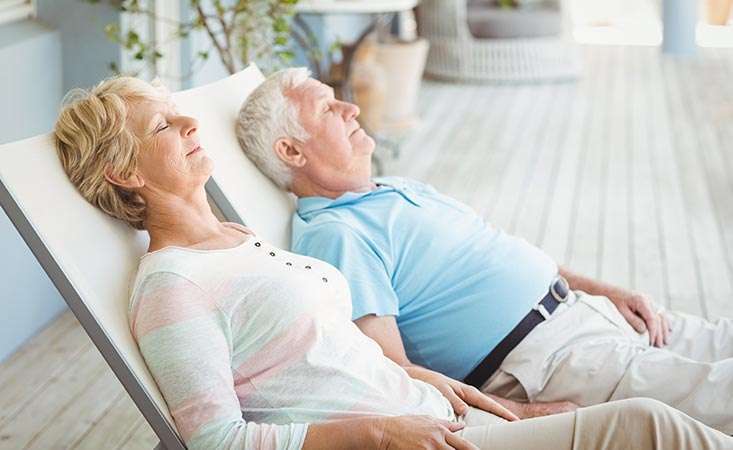
Editor’s note: This previously published article has been updated as of July 2020 to include important tips related to the coronavirus pandemic.
The many splendors of summer can be wonderful for pancreatic cancer patients on treatment. After all, it’s good for the body and soul to be outside for fresh air and sunshine (while keeping appropriate social distancing of at least six feet and wearing a face covering).
But hot weather conditions can present some challenges, including affecting treatment side effects.
For patients on targeted therapies, surgery, chemotherapy or radiation, we’ve compiled tips from various healthcare professionals on simple, smart ways to enjoy your favorite activities, stay comfortable, avoid harmful risks or worsen side effects.
Avoid Too Much Sun
According to Brandee Aquilino, PsyD, MA, Assistant Professor of Oncology at Roswell Park Comprehensive Cancer Center, specific forms of chemotherapy and radiation cause cancer patients to be more sensitive to sun exposure.
Since sun rays tend to be the strongest from 10 a.m. to 3 p.m., patients should limit their time in the sunshine during that period. Reapply sunscreen with an SPF of 30 or higher, particularly after swimming or sweating. If your skin has been irritated during treatment, ask your doctor to recommend a sunscreen.
When radiation treatment has been given, find out the area of the body that’s been exposed, because it will be especially sensitive to sunburn. Protect surgical scars from the sun.
“Surgical scars may be especially sensitive to sun damage,” says Michael Naughton, MD, Associate Professor at Washington University School of Medicine.
Drink Plenty of Fluids
Various therapies cause dehydration and the heat of the summer may make it worse. Hydrate with cold water and iced beverages that restore electrolytes such as coconut water or Gatorade. Stay away from drinks with caffeine or alcohol, which can bring on dehydration and hot flashes.
Eat Smart
- Some of the side effects of treatment are changes in taste and digestion. Be prepared for issues including diarrhea, nausea and acid reflux by speaking with your doctor about foods to avoid
- Terri Ades, RN, MS, ACON, Director of Cancer Information at the American Cancer Society, says low white-cell counts from treatment can make a patient more exposed to food-borne bacteria. Ensure that food has been well-chilled and not left out too long in the heat (important to keep in mind if you are picnicking this summer, or gathering with an appropriately sized group, given pandemic precautions)
- Since patients on treatment have a higher risk for infection, fruitsand vegetables need to be washed (especially important during the coronavirus) and all bruised sections removed
- Be careful with fruits that grow on vines because mold and bacteria can collect around the stem and cause infection
- To help hydrate, try fruits and veggies with higher water concentration like watermelon or cucumbers
Think Before You Swim
Many swimming pools contain chlorine, which can trigger skin sensitivity from radiation and chemotherapy. Plus, patients with suppressed immune systems should avoid, in general, communal pools and hot tubs to minimize the risk of infection from water-borne bacteria.
Fend Off Fatigue
The fatigue patients experience from treatment can be intensified by summer heat. Monique Williams, adult nurse practitioner at the University of Michigan Comprehensive Cancer Center, offers a few tips to help fight the fatigue from hot weather.
- Stay in an air-conditioned space
- Eat small, frequent meals
- Rest if you feel tired
- Dress in lightweight clothing and lighter colors. Wear a headscarf or hat or use a sun umbrella, particularly if you’ve lost hair due to treatment.
- Stay active but don’t push it. Consider moving your exercise indoors for the summer – this may include exercising in your home, due to coronavirus restrictions in some parts of the country that have led to gym closures. There are many online and at-home options. Just be sure to check with your doctor before starting any new exercise program.
Pancreatic cancer patients going through treatment are more vulnerable to heat-related issues. It’s important to know if any medications being taken may cause photosensitivity reactions in relation to sunlight or heat. Speak with your doctor about the best safety precautions so you can enjoy all that the summer season offers.





